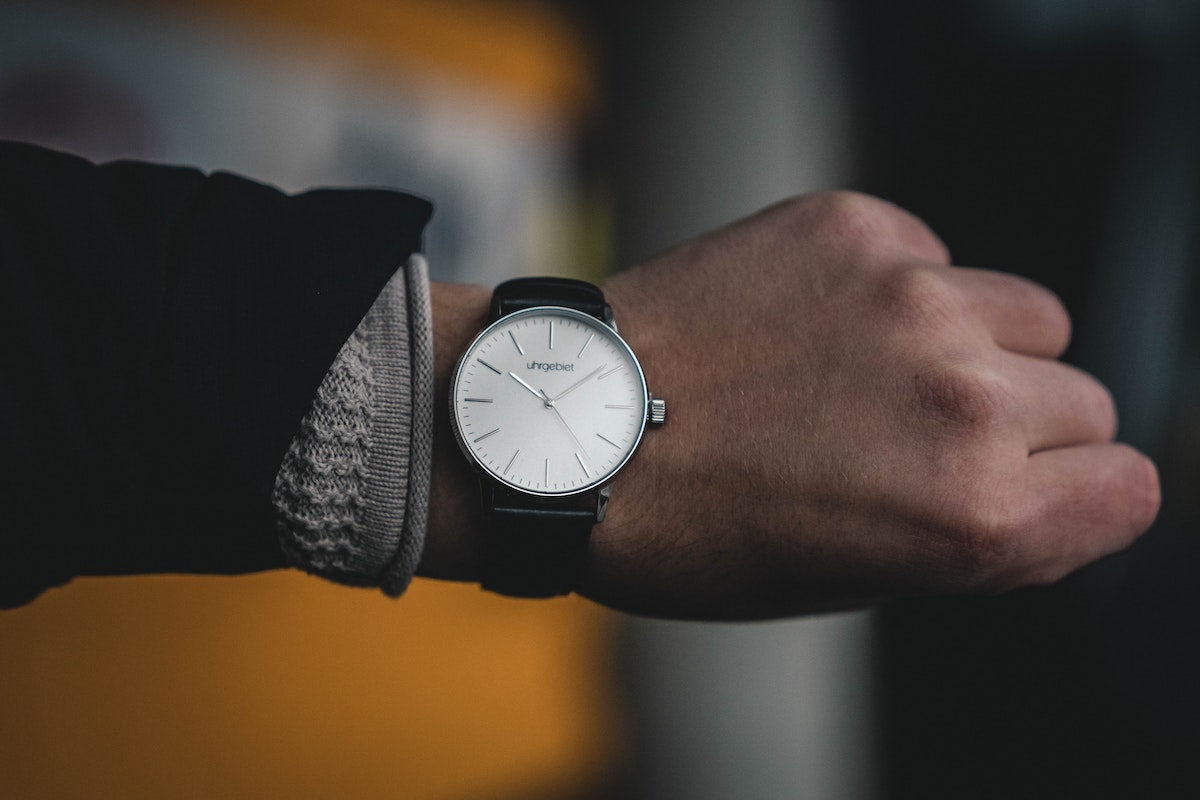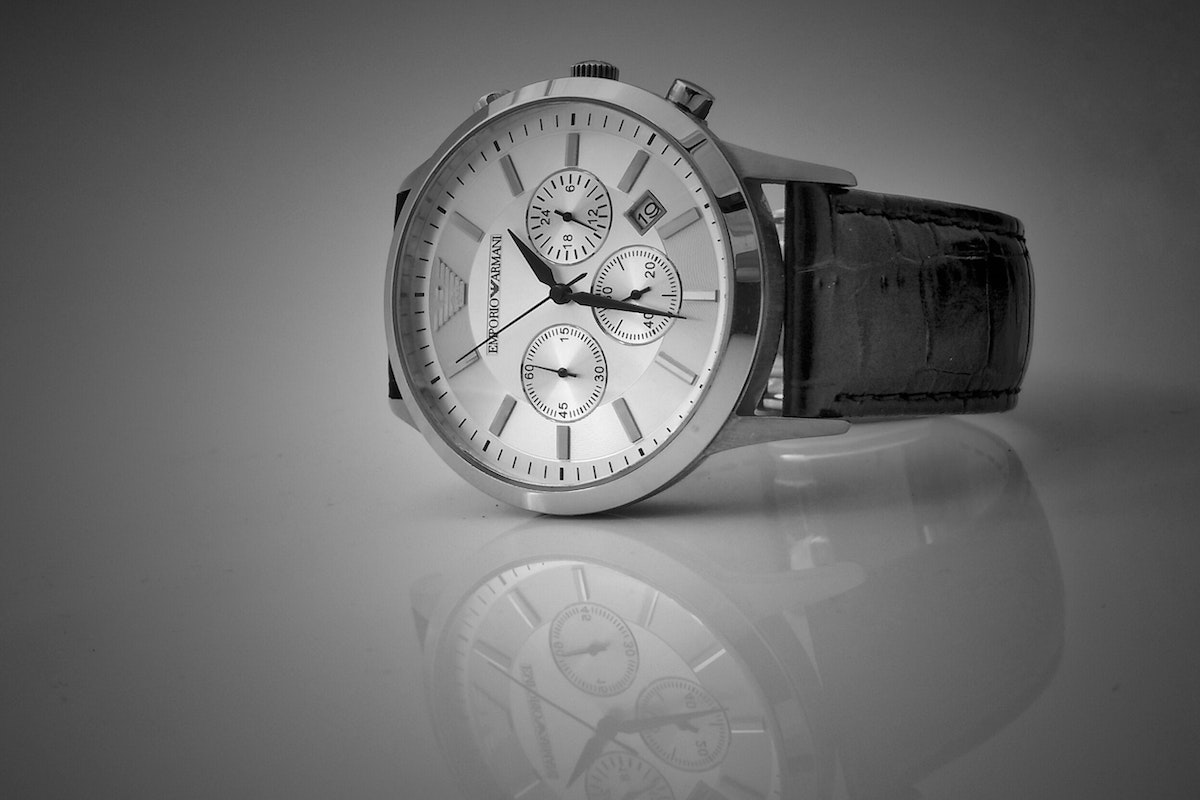You’ve likely heard the R-word thrown around. The L-word is also pretty big these days. No, not “relaxation” and “love.” Instead, headlines and commentators are warning of an upcoming recession. Scroll through LinkedIn, and you’ll see a steady stream of layoff announcements.
It’s enough to induce anxiety and perhaps have you clutching your wallet. Understandably, you may be more discerning about your purchases right now, including even looking at luxury watches for men. However, is now actually a good time to splurge on a timepiece? Are watches a good investment in a down economy?
“The question of whether luxury watches are a good investment is complex, and the answer depends on various factors,” says Sean K. August, CEO of The August Wealth Management Group, a fee-only private wealth management firm.
August and others shared timely tips on what to consider before purchasing luxury watches during this time of economic uncertainty.

Factors to consider before purchasing luxury watches
Are watches a good investment right now? You’ll want to take some time to consider these factors first.
What brand are you considering?
A watch doesn’t need a designer label to be worthy of your time. However, it does matter when it comes to an investment piece.
“The most liquid markets and the watches with the most models trading above retail price are still going to be the usual suspects: Rolex, Patek Philippe, and Audemars Piguet,” says Rob Petrozzo, the co-founder of Rally, a liquid financial marketplace for buying and selling stocks.
That doesn’t mean you can’t think about other brands that sell luxury watches for men, but they won’t yield the same investment results in the short or long term.
“There are a lot of amazing, well-known watch brands outside of those brands with investment-grade pieces, [but] those three names are where the average investor is going to be most comfortable and where investors are still getting the most bang for their buck,” Petrozzo says.
Scarcity is critical
This advice could go without saying, but experts agree that it bears repeating, especially when people are being more careful about big purchases.
“Like many collectible asset investments, scarcity matters,” Petrozzo says. “The limited-run pieces that utilize unique complications and rare materials are always a good starting point. For vintage pieces, when you can add provenance or tie a meaningful story of procurement or ownership to the piece, that always contributes to long-term value as well.”
Another expert agrees.
“Always pay attention to production numbers for the model you are looking at,” says Adam Golden, the owner of Menta Watches, specializing in new and vintage luxury timepieces. “Generally speaking, watches that are limited or out of production — thereby unable to be produced again nor in larger quantities — tend to hold their value better over time. Supply and demand are very important when it comes to watch collecting.”
This step requires doing some homework and refraining from impulse buying.
“A rule of thumb in the current market: If a watch is available for anyone off the street to purchase out of the display case in an authorized dealer, it’s typically not an investment-worthy piece,” Petrozzo says.
Does the luxury watch have a celebrity fan?
Petrozzo notes that investment-worthy watches often have unofficial names. Why? Some luxury watches have found their way onto some seriously famous wrists.
“Average investors no longer refer to watches by their reference or model number,” Petrozzo says. “They say, ‘That’s the John Mayer Rolex’ or ‘The Rafael Nadal Richard Mille.’ With more luxury brands embracing celebrity and popular culture, having a known celebrity collector wear a piece is often enough to move price significantly.”
Petrozzo says it’s led to some collaborations in recent years, such as Tiffany & Co. and Patek Philippe.
“[The collaboration featured] a very ostentatious design and an over-the-top rollout, which, 10 years ago, would have never happened,” Petrozzo says. “If you google that watch today, the only wrists you see them on are A-List celebrities. The $52,000 watch now trades on the secondary market for over $3 million.”
Check the condition
Brand and scarcity are important, but Golden says the condition is still king.
“Much like a piece of art, car, or other collectibles, the watches that remain in excellent condition and as to how they left the factory will always command a higher premium and have better value retention in the long run,” Golden says.
Golden suggests inspecting the watch and asking yourself, “Has it been restored? Has the case been polished poorly?”
Do you trust the seller?
Golden advises people to buy the seller as much as they’re buying the watch. He suggests asking yourself questions such as:
- Is the source a trusted dealer/auction/fellow collector?
- Will you have recourse to return it should it not arrive as described?
“Establishing a long-term relationship with a trusted source is always important,” Golden says. “It will also give you access to future watches you may be interested in and usually at a better price as a repeat customer.”

Bottom line: Are watches a good investment?
Luxury watches for men aren’t necessarily a necessity. During an economic downturn, you may be hesitant to invest in one. You may also feel tempted and wonder if it’s worth it. Ultimately, it depends on the brand, scarcity, and condition. You also want to ensure you’re purchasing from a trusted source. Ultimately, though, the choice is a matter of personal preferences. You may also simply wish to buy a luxury watch rather than consider the investment aspect of it, which is acceptable if you can afford it.
“On a personal level, I have a fondness for luxury watches, such as the Patek Phillipe or a classic Rolex, which have experienced significant appreciation in value in recent years,” August says. “However, I do not purchase watches as part of my investment portfolio. My purchases are driven by personal preference and the belief that certain models will appreciate in value.”



